
Angus MacLachlan Talks About A Little Prayer - Exclusive Interview
Robert Kojder interviews A Little Prayer's writer-director Angus MacLachlan...
At Sundance 2023, Angus MacLachlan, the writer and director, debuted A Little Prayer, a subtly touching examination of a chaotic family predominantly viewed through the eyes of its patriarch, Bill, portrayed by the consistently excellent David Strathairn. The film closely explores Bill's relationship with his son David’s (Will Pullen) partner Tami (a richly layered performance by Jane Levy), as he uncovers challenging secrets and dynamics. Although the narrative includes Tami's somewhat reckless, brash, yet ultimately well-meaning sister Patti (Anna Camp), who returns with her young daughter after discovering her partner's ongoing drug addiction, the main focus is on Bill deliberating over his son's infidelity and what to disclose to Tami. Equally important is Tami's future and her aspirations in life.
After receiving enthusiastic responses at Sundance, Sony Pictures Classics acquired the film but ultimately did not take any action with it. I am unsure of their reasoning; all I know is they should be criticized for allowing such neglect. Fortunately, they have relinquished the rights completely, allowing the film to participate in festivals once more. Reportedly, the movie has found new distribution and is set to have a theatrical release in the future.
A Little Prayer recently screened at Ebertfest and is also the closing feature of the 12th annual Chicago Critics Film Festival, where Angus MacLachlan and Jane Levy will be present for a film introduction and a post-screening Q&A. I was fortunate to speak with Angus about topics such as parenting, filming again in his hometown of Winston-Salem, collaborating with cinematographer Scott Miller to capture both tranquility and tumult, the remarkable cast, and more. If you're interested in seeing them at the festival, some tickets are still available here. Enjoy the interview:
Congratulations on this special gem finally being released to the world again, with more film festivals on the horizon. That must be thrilling.
It is! I’m really excited. The film will have a theatrical release, but unfortunately, many films play at festivals without reaching a wider audience. The experience of watching a film with an audience is invaluable compared to viewing it alone on a device.
We seem to live in a time where parents often avoid acknowledging or confronting their children's significant wrongdoings, regardless of their age. Watching Bill (David Strathairn) navigate this journey felt particularly relevant. Was that intentional, or did the film develop that way naturally?
It was definitely intentional. I’ve been working on this film for almost eight and a half years, starting when my daughter was 15. I have one daughter, who is now nearly 24 and living in Chicago after graduating from the School of the Art Institute of Chicago last year. In hindsight, I realize I was writing about parenting adult children and preparing myself for my daughter to grow up, go to school, and venture into the world. However, this realization came about quite unconsciously given the extended timeline of the film's production. The intention was indeed to depict the struggle of wanting to protect them and guide them in life, despite the realization that you can no longer do so, and how difficult that is.
What inspired you to film in your hometown of Winston-Salem?
Not all of my films are set here, but many are. I pictured this family residing in a specific neighborhood called Konnoak Hills, where we shot the film. After finishing the script, I knocked on doors asking if we could film in people’s homes. One rather naive man agreed, saying he would be at the beach for three and a half weeks, so I could use his house. I had envisioned the characters living in a house with a little guest house in the backyard and a garden shed, and I found a place that had all these features, which was incredible. I think grounding the actors in the actual environment of their characters particularly benefits Southern narratives. The South is often depicted in a derogatory or clichéd manner, and I aimed for a representation that feels more authentic.
This film feels very lived-in. You achieved that.
Thank you.
Can you explain your choice of the 1:59 aspect ratio?
I collaborated closely with my great DP, cinematographer Scott Miller, and we opted for this ratio because we have around 13 scenes set in the kitchen. We wanted it to feel intimate, reflecting how families often feel cramped together.
That makes sense. I’m also intrigued by the cinematography since I love the aesthetic of this quietly moving film. I noticed some shots are entirely still, while others, especially in the kitchen, have a shaky quality. Can you elaborate on the philosophy behind those choices?
I have a deep appreciation for actors, having been one myself for a long time. I had a fantastic cast, and I find it compelling to watch actors perform in front of the camera. I’m not deterred by the risk

Other articles
-Movie-Review.jpg) Birdeater (2023) - Film İncelemesi
Birdeater, 2023. Yönetmenler Jack Clark ve Jim Weir. Oyuncular: Mackenzie Fearnley, Shabana Azeez, Ben Hunter, Jack Bannister, Clementine Anderson, Alfie Gledhill, Harley Wilson, Caroline McQuade ve Will Rodriguez. KONU: Gelin adayı, nişanlısının bekarlığa veda partisine davet edilir; ancak ilişkilerine dair rahatsız edici detaylar açığa çıktığında, gece vahşi bir hal alır. [...]
Birdeater (2023) - Film İncelemesi
Birdeater, 2023. Yönetmenler Jack Clark ve Jim Weir. Oyuncular: Mackenzie Fearnley, Shabana Azeez, Ben Hunter, Jack Bannister, Clementine Anderson, Alfie Gledhill, Harley Wilson, Caroline McQuade ve Will Rodriguez. KONU: Gelin adayı, nişanlısının bekarlığa veda partisine davet edilir; ancak ilişkilerine dair rahatsız edici detaylar açığa çıktığında, gece vahşi bir hal alır. [...]
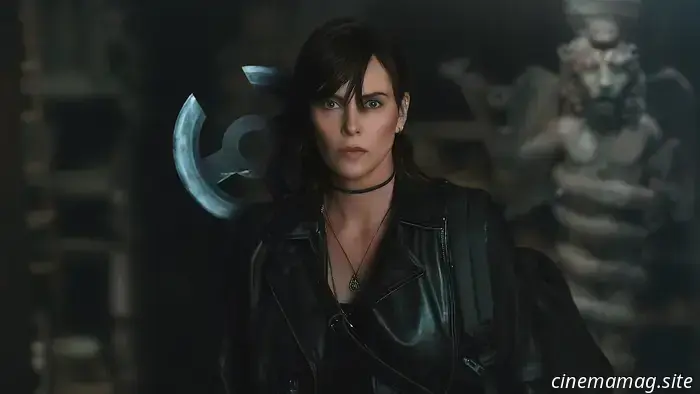 In the trailer for The Old Guard 2, the immortals are being pursued.
Following the release of yesterday's poster for The Old Guard 2, Netflix has now revealed the first trailer for the action sequel. In this installment, Charlize Theron's Andy and her group of immortal fighters are pursued by a mysterious antagonist played by Uma Thurman, who appears to have extensive knowledge about them. Check out the trailer below... Andy (Charlize Theron) and her team […]
In the trailer for The Old Guard 2, the immortals are being pursued.
Following the release of yesterday's poster for The Old Guard 2, Netflix has now revealed the first trailer for the action sequel. In this installment, Charlize Theron's Andy and her group of immortal fighters are pursued by a mysterious antagonist played by Uma Thurman, who appears to have extensive knowledge about them. Check out the trailer below... Andy (Charlize Theron) and her team […]
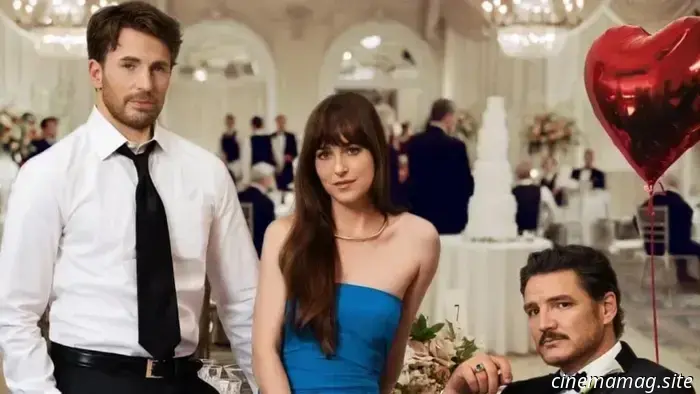 Fresh trailer and posters for Materialists featuring Dakota Johnson, Pedro Pascal, and Chris Evans.
In anticipation of its theatrical release next month, A24 has unveiled a new trailer along with three character posters for Celine Song's romantic comedy Materialists, featuring Dakota Johnson, Pedro Pascal, and Chris Evans. Check it out here… A young, driven matchmaker in New York City faces a dilemma as she balances her ideal match with her flawed ex. […]
Fresh trailer and posters for Materialists featuring Dakota Johnson, Pedro Pascal, and Chris Evans.
In anticipation of its theatrical release next month, A24 has unveiled a new trailer along with three character posters for Celine Song's romantic comedy Materialists, featuring Dakota Johnson, Pedro Pascal, and Chris Evans. Check it out here… A young, driven matchmaker in New York City faces a dilemma as she balances her ideal match with her flawed ex. […]
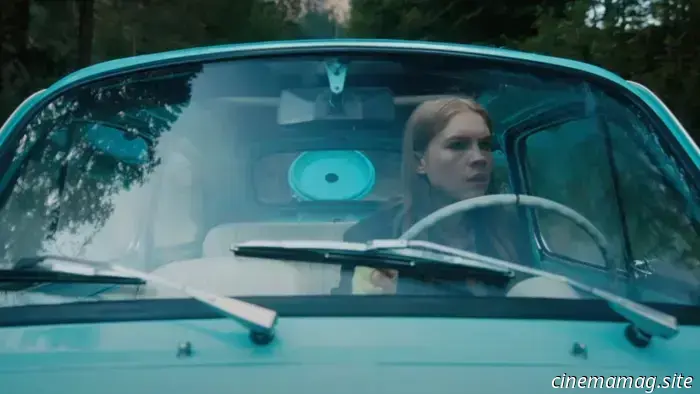 Sew Torn Exclusive Scene: A Seamstress Executes the Ideal Heist Using Thread
Sew Torn, the impressive debut film by the confident 24-year-old director Freddy MacDonald, tells the story of a seamstress named Barbara (Eve Connolly) who finds herself entangled.
Sew Torn Exclusive Scene: A Seamstress Executes the Ideal Heist Using Thread
Sew Torn, the impressive debut film by the confident 24-year-old director Freddy MacDonald, tells the story of a seamstress named Barbara (Eve Connolly) who finds herself entangled.
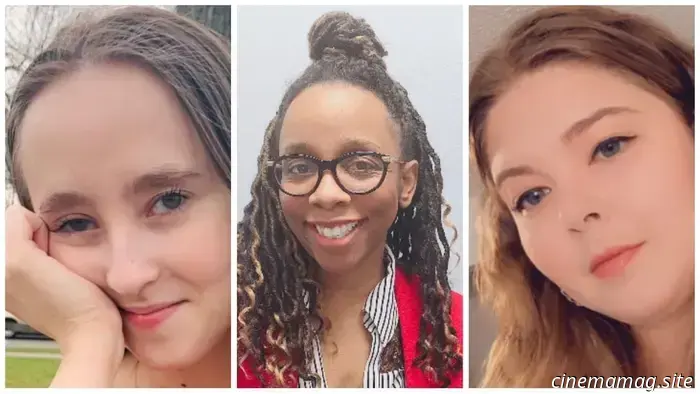 International Screenwriters' Association Unveils Inaugural Student Fellows
The International Screenwriters’ Association (ISA) has unveiled its inaugural class of Student Fellows while introducing the ISA Student Fellowship, a brand new initiative.
International Screenwriters' Association Unveils Inaugural Student Fellows
The International Screenwriters’ Association (ISA) has unveiled its inaugural class of Student Fellows while introducing the ISA Student Fellowship, a brand new initiative.
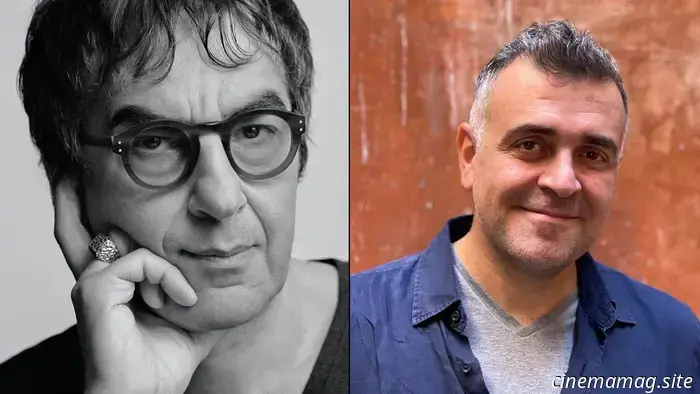 Atom Egoyan and Eric Nazarian Discuss Filmmaking, Authenticity, and the Psychology Behind Violence
Oscar-nominated filmmaker Atom Egoyan and writer-director Eric Nazarian took part in an enlightening discussion on the eve of the theatrical premiere of Nazarian's latest film, Die Like a Man, which had a theatrical run in Los Angeles last month before its digital launch. Egoyan, an Armenian-Canadian director, is recognized as one of the leading filmmakers in the industry.
Atom Egoyan and Eric Nazarian Discuss Filmmaking, Authenticity, and the Psychology Behind Violence
Oscar-nominated filmmaker Atom Egoyan and writer-director Eric Nazarian took part in an enlightening discussion on the eve of the theatrical premiere of Nazarian's latest film, Die Like a Man, which had a theatrical run in Los Angeles last month before its digital launch. Egoyan, an Armenian-Canadian director, is recognized as one of the leading filmmakers in the industry.
Angus MacLachlan Talks About A Little Prayer - Exclusive Interview
Robert Kojder engages in conversation with Angus MacLachlan, the writer and director of A Little Prayer… At Sundance 2023, MacLachlan showcased A Little Prayer, a subtly poignant exploration of a complicated family, seen mainly through the eyes of its patriarch, Bill, portrayed by the consistently impressive David Strathairn. The story is also closely tied to his son David’s partner, Tami (a beautifully nuanced performance by […]
